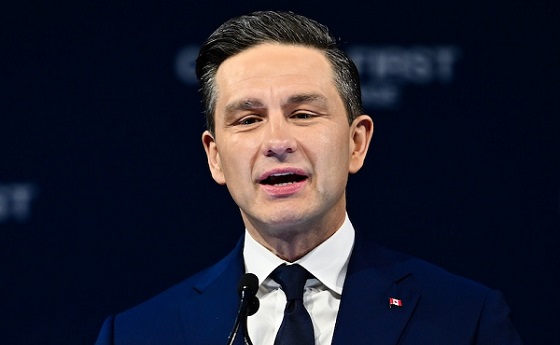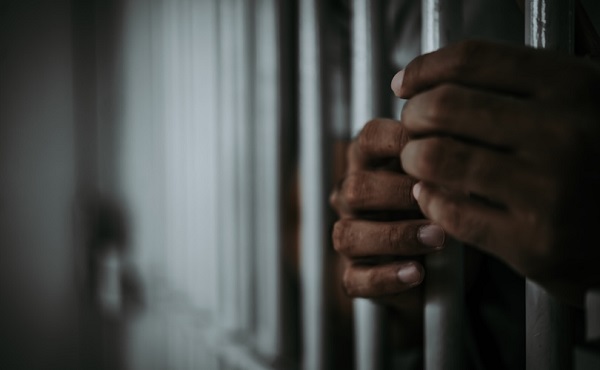National
Trudeau’s Senate Power Grab – How Every Province is Now Under Ottawa’s Thumb
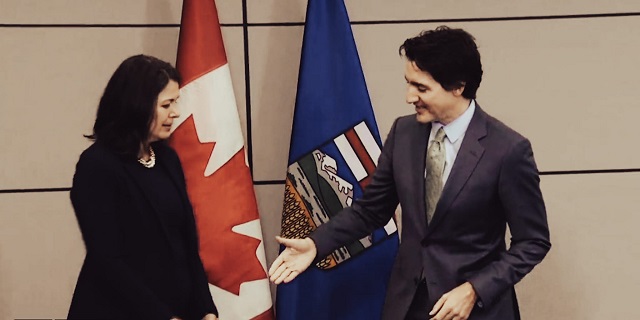
First, let’s talk about who these new senators are. Dr. Kristopher Wells is one of them. Wells is a well-known activist in the 2SLGBTQ+ community, a vocal advocate for every liberal cause under the sun. He’s been busy pushing for policies that promote radical gender ideology in schools, criticizing Alberta’s conservative stance at every turn. Now, Trudeau wants us to believe that Wells, who has made a career out of progressive activism, will somehow be an “independent” voice in the Senate? Give me a break.
Let’s be absolutely clear here, folks: Daryl Fridhandler is no impartial figure. He’s a corporate lawyer who’s spent years involved in organizations pushing left-wing agendas under the guise of community service. And what does that really mean? He’s a leftist activist, plain and simple.
And now, Trudeau wants us to believe Fridhandler’s Senate appointment is “independent”? Give me a break. This guy has funneled nearly $80,000 into the Liberal Party—($79,968.77, to be exact). The Senate shouldn’t be for sale to the highest bidder or most loyal crony. This is a classic Trudeau move, stacking the Senate with his cronies and turning it into a rubber stamp for his radical agenda. It’s not just political maneuvering; it’s an outright attack on our democratic institutions.
The Senate is supposed to serve as a check on power, a place for sober second thought, not a Liberal lapdog doing Trudeau’s bidding. This is the kind of corrupt backroom dealing that erodes public trust and undermines the very fabric of our democracy.
Now, let’s turn to Alberta Premier Danielle Smith. She’s not happy, and frankly, who can blame her? She called out these appointments for what they are—another shameless attempt by Trudeau to undercut the democratic will of Albertans. Smith points out that Alberta has a system for electing senators-in-waiting, who are meant to represent the interests of Albertans in Ottawa. Yet, Trudeau has completely ignored these elected representatives. Instead, he has handpicked his own cronies. And make no mistake, these so-called “independent” senators are Justin Trudeaus cronies and will vote whichever way he tells them too.
Smith’s objection isn’t just about these specific appointees. It’s about the broader pattern we’ve seen from this government— a total disregard for Alberta’s democratic choices. Remember, folks, Alberta has repeatedly elected conservative senators-in-waiting, people who actually represent the interests of their province. But Trudeau doesn’t care about that. No, he’d rather install people who are loyal to him, not to the people of Alberta.
This brings us to the so-called Independent Advisory Board for Senate Appointments. Trudeau loves to talk about how this board is “independent,” how it’s all about merit-based criteria, blah, blah, blah. But let’s get real for a second. This board isn’t independent at all. The members are nominated by Trudeau. They report to Trudeau. They recommend candidates to Trudeau. And then Trudeau appoints his picks, all while pretending there’s some kind of impartial process at play. It’s a total sham!
Let’s break it down even further. The whole process is designed to look like it’s fair and transparent, but in reality, it’s just another way for Trudeau to exert control. The so-called independent senators are anything but. They might not wear Liberal Party badges, but make no mistake—they’re marching to the beat of Trudeau’s drum. This isn’t about finding the best people to serve Canadians. It’s about finding the best people to serve Justin Trudeau and his agenda.
This isn’t just my opinion—look at the facts. Since 2016, Trudeau has made 86 appointments to the Senate, all under this “independent” system. And surprise, surprise, the Senate has drifted further and further left, rubber-stamping Trudeau’s policies with little resistance. The whole thing is a farce, and Trudeau’s latest picks just prove it.
And here’s the proof that the Senate isn’t independent: Bill C-18. This so-called “Online News Act” is Trudeau’s failed attempt at news censorship. The bill mandates that tech giants like Google and Meta (formerly Facebook) pay Canadian news publishers for content shared on their platforms. It sounds nice on paper, but what’s the result? Meta decided to ban all news content in Canada. That’s right. Canadian independent media lost its voice because they’re no longer being shared on the platforms where people actually get their news.
Ask yourself: if the Senate was truly independent, truly balanced with some business-savvy, right-leaning representatives, do you really think a bill like C-18 would have passed? No chance. Any senator with a shred of common sense would recognize that forcing tech companies into these kinds of deals doesn’t solve the problem; it just pushes these companies to cut ties with Canadian news entirely. But this Senate, filled with Trudeau’s picks, rubber-stamped it without a second thought.
The Senate was designed to be a place of independent judgment, a check on whoever’s in power—be it Liberal, Conservative, or otherwise. It’s supposed to ensure that no single party can bulldoze their agenda without scrutiny. But what happens when Trudeau stacks the Senate with his cronies? The whole system collapses! Even if the Conservatives take power tomorrow, Trudeau’s liberal foot soldiers will be there, blocking, stalling, and pushing his leftist agenda from the shadows of the Senate.
So, where does this leave Canada? It leaves us with a Senate that is increasingly a tool of the Prime Minister’s Office, rather than a chamber for balanced debate and regional representation. Every province, not just Alberta, is now at the whims of Ottawa, Justin Trudeau, and his handpicked cronies. The Senate no longer reflects the diverse interests of Canadians; instead, it mirrors the ideological leanings of one man. Provinces across the country are left sidelined, their democratic choices ignored, and their voices muted under Trudeau’s centralized control.
Danielle Smith is right to be furious. Albertans are right to be furious. And every Canadian who cares about democracy and fairness should be furious too. The Senate is supposed to be an independent body, a check on the power of the Prime Minister, not a rubber stamp for his agenda. But as long as Trudeau is in charge, it looks like that’s exactly what it’s going to be. And that’s not just a shame—it’s a scandal.
For the full experience, subscribe to The Opposition with Dan Knight .
Business
‘TERMINATED’: Trump Ends Trade Talks With Canada Over Premier Ford’s Ronald Reagan Ad Against Tariffs
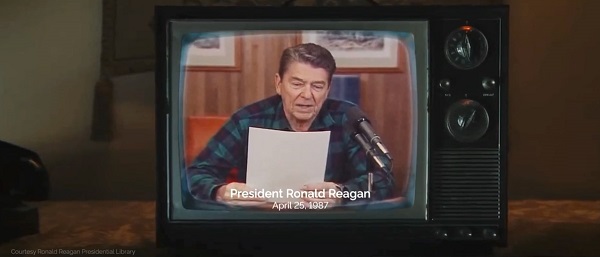

From the Daily Caller News Foundation
President Donald Trump announced late Thursday that trade negotiations with Canada “ARE HEREBY TERMINATED” after what he called “egregious behavior” tied to an Ontario TV ad that used former President Ronald Reagan’s voice to criticize tariffs.
The ad at the center of the feud was funded by Ontario Premier Doug Ford’s government as part of a multimillion-dollar campaign running on major U.S. networks. The spot features Reagan warning that tariffs may appear patriotic but ultimately “hurt every American worker and consumer.”
Dear Readers:
As a nonprofit, we are dependent on the generosity of our readers.
Please consider making a small donation of any amount here.
Thank you!
“They only did this to interfere with the decision of the U.S. Supreme Court, and other courts. TARIFFS ARE VERY IMPORTANT TO THE NATIONAL SECURITY, AND ECONOMY, OF THE U.S.A,” Trump wrote on his Truth Social platform late Thursday. “Based on their egregious behavior, ALL TRADE NEGOTIATIONS WITH CANADA ARE HEREBY TERMINATED.”
Ford first posted the ad online on Oct. 16, writing in a caption, “Using every tool we have, we’ll never stop making the case against American tariffs on Canada. The way to prosperity is by working together.”
The Ronald Reagan Presidential Foundation and Institute criticized the ad Thursday evening, saying it “misrepresents” Reagan’s 1987 radio address on free and fair trade. The foundation said Ontario did not request permission to use or alter the recording and that it is reviewing its legal options.
The president posted early Friday that Canada “cheated and got caught,” adding that Reagan actually “loved tariffs for our country.”
The ad splices audio from Reagan’s original remarks but includes his authentic statement: “When someone says, ‘let’s impose tariffs on foreign imports’, it looks like they’re doing the patriotic thing by protecting American products and jobs. And sometimes, for a short while it works, but only for a short time.”
Reagan also noted at the end of his remarks that, in “certain select cases,” he had taken steps to stop unfair trade practices against American products and added that the president’s “options” in trade matters should not be restricted, which the ad did not include.
Since returning to the White House, Trump has imposed tariffs on Canadian aluminum, steel, automobiles and lumber, arguing they are vital to protecting U.S. manufacturing and national security.
The Supreme Court is set to hear arguments in November over whether the administration overstepped its authority by invoking the International Emergency Economic Powers Act to impose reciprocal tariffs on dozens of nations, including Canada. Tariffs on commodities such as steel, aluminum and copper were implemented under Section 232 of the Trade Expansion Act and are not currently being challenged, as they align with longstanding precedent established by prior administrations.
Thursday’s move marks the second time this year Trump has canceled trade talks with Ottawa. In June, he briefly halted discussions after Canada imposed a digital services tax on American tech firms, though the Canadian government repealed the measure two days later.
Business
A Middle Finger to Carney’s Elbows Up

Elbows Up Stengthens U.S. Tariff Resolve at Canada’s Expense
The disastrously misguided “Elbows Up” campaign championed by the Carney government rooted in the fantasy that a smug, arrogant Liberal elite wields leverage over the largest economy in human history, has suffered yet another devastating blow. The latest fallout: U.S.-based truck manufacturer Paccar Inc., maker of iconic heavyweights such as Kenworth and Peterbilt, is slashing Canadian production and laying off hundreds of workers in anticipation of a 25-per-cent U.S. import tariff set to take effect next month.
Employees at Paccar’s Sainte-Thérèse, Quebec plant were informed Wednesday that the company will move production of trucks destined for the U.S. market back to its American facilities. According to Daniel Cloutier, Quebec director for Unifor, approximately 300 jobs will be eliminated, leaving roughly 500 workers at the plant.
Honking for Freedom Substack is a reader-supported publication.
To receive new posts and support my work, consider becoming a free or paid subscriber.
“They will continue building trucks for the Canadian market,” Cloutier said, noting that domestic demand represents a much smaller portion of output. At its peak, the plant produced 96 trucks per day; production will now drop to just 18 units daily. That is an 81% drop.
Paccar declined to confirm the restructuring or provide additional details. However, in a financial earnings call a day earlier, CEO Preston Feight described the U.S. tariff policy as advantageous for the company. “I think it helps Paccar significantly,” Feight said. “It gives us a competitive leg up from where we’ve been.”
U.S. Tariffs Driving Industry Shift
U.S. President Donald Trump has confirmed that all medium and heavy-duty trucks imported into the United States will face a 25-per-cent tariff beginning Nov. 1, along with an additional 10-per-cent duty on buses. The tariffs are being imposed under Section 232 of the Trade Expansion Act, which targets imports deemed to pose a national security risk.
These measures follow earlier tariffs that have already struck Canadian steel, aluminum, automobiles, copper, and lumber, forcing companies to shelve investments and reconsider their North American strategies.
Broader Auto Sector Retrenchment
Other automakers are also pulling back production in Canada. General Motors announced Tuesday it is ending production of the Chevrolet BrightDrop electric delivery van in Ingersoll, Ontario, costing over 1,100 workers their jobs. Stellantis recently confirmed plans to shift production of the Jeep Compass from Brampton, Ontario, to Belvidere, Illinois, as part of a strategy to increase U.S. output by 50 per cent by 2029.
Quebec Plant at Risk
The Sainte-Thérèse plant, which manufactures Class 5, 6 and 7 Kenworth and Peterbilt trucks, has already endured two rounds of layoffs over the past year as uncertainty around tariffs weakened demand. At peak production, the facility employed over 1,400 people.
Cloutier said the union is pressing both the Quebec and federal governments to prioritize the purchase of domestically made vehicles to sustain production levels. Without such measures, he warned, the plant could be forced to close due to high fixed costs and insufficient volume. “Let’s not pretend global trade hasn’t changed with this President,” Cloutier said. “We need to stop twiddling our thumbs.”
Bus Manufacturers Also Exposed
Quebec is also home to two major bus manufacturers, Prevost and Nova Bus, both owned by Volvo Group that could face similar challenges due to new tariffs on buses entering the U.S. Executives at both companies say they are still assessing the impact of the policy shift.
What can we learn from all this?
Perhaps our deep reliance on American innovation has consequences we have been unwilling to confront. The warning signs were evident well before Donald Trump’s election. He was explicit that tariffs would be used as a strategic tool to financially incentivize American companies to return to the United States. This was not hidden, it was a core pillar of his economic agenda.
I have said repeatedly on the Marc Patrone Show on Sauga 960 that my frustration is not with America’s strategy, but with Canada’s political class. Their smug arrogance lies in the belief that, as great as Canada can be, we could somehow dominate the greatest economy in the history of civilization rather than work with it. The Trump administration never wanted Canada to become the 51st state; they want our valuable resources and are willing to pay fair value for them, and they expect Canada to finally take our internal security threats seriously; something I have personally presented on in the United States. Yet instead of leveraging our strategic position, Canada’s leadership chose performative resistance over pragmatic partnership.
The most telling moment came when President Trump reportedly asked Justin Trudeau what would happen if the United States imposed a 25-per-cent tariff on all Canadian goods. Trudeau’s response, “It would destroy Canada” was an example of catastrophic stupidity. It handed Trump the gun he could use to execute Canada economically and perhaps cost Canada its sovereignty over the long term.
Reminiscent of the scene from The Hunt for Red October, when Captain Tupolev, in an act of smug Laurentian style arrogance, fires a torpedo at Ramius only for it to circle back and destroy his own submarine, a catastrophic miscalculation born of arrogance and a complete misunderstanding of the enemy’s capabilities. A catastrophic miscalculation that mirrors Elbows Up stupidity.
Order Now!
Honking For Freedom – The Trucker Convoy That Gave Us Hope HonkingForFreedom.com
Twitter | Locals | Rumble | Instagram
www.BenjaminjDichter.com
Audio
Freedom Coffee Podcast
Honking for Freedom Substack is a reader-supported publication.
To receive new posts and support my work, consider becoming a free or paid subscriber.
-

 Agriculture1 day ago
Agriculture1 day agoFrom Underdog to Top Broodmare
-

 Health2 days ago
Health2 days agoCanada surrenders control of future health crises to WHO with ‘pandemic agreement’: report
-

 Censorship Industrial Complex2 days ago
Censorship Industrial Complex2 days agoCanada’s justice minister confirms ‘hate crimes’ bill applies to online content
-
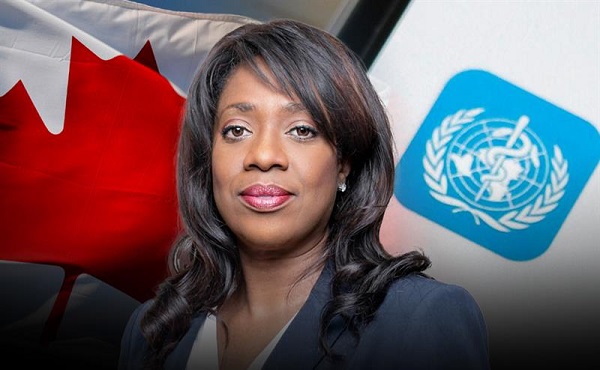
 Health1 day ago
Health1 day agoSovereignty at Stake: Why Parliament Must Review Treaties Before They’re Signed
-

 Bruce Dowbiggin2 days ago
Bruce Dowbiggin2 days agoIs The Latest Tiger Woods’ Injury Also A Death Knell For PGA Champions Golf?
-

 Alberta2 days ago
Alberta2 days agoAlberta’s licence plate vote is down to four
-

 Business1 day ago
Business1 day ago$15B and No Guarantees? Stellantis Deal explained by former Conservative Shadow Minister of Innovation, Science and Technology
-
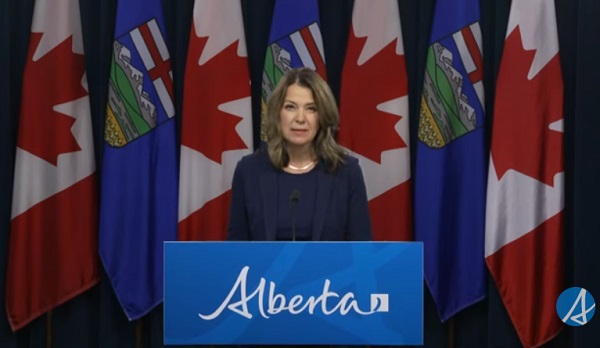
 Alberta24 hours ago
Alberta24 hours agoPremier Smith moves to protect Alberta in International Agreements















